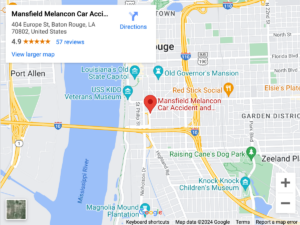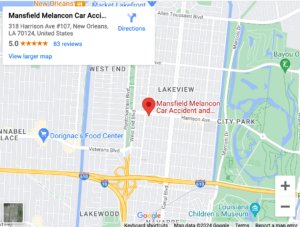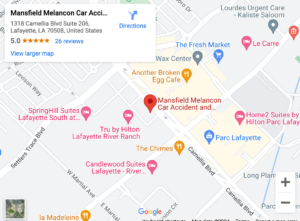
When someone is injured due to another person’s negligence, the injured person is typically the one who files a personal injury claim. However, there is another type of loss that is often overlooked – the loss of consortium.
In Louisiana, this legal term refers to the loss of companionship, affection, and support that a spouse or family member experiences when their loved one is severely injured or killed. If you or a loved one is going through this situation, it’s important to understand what loss of consortium is, how it works, and how you may be able to seek compensation.
What Is Loss of Consortium?

Loss of consortium is a legal claim made by the spouse or family members of someone who has been injured or killed. The claim is based on the idea that the injury has caused a significant emotional, physical, or financial loss to the family members.
This claim is often part of a larger personal injury case and allows the non-injured spouse or family member to seek damages for their suffering. This loss can include the inability to enjoy a close relationship, companionship, sexual intimacy, and even the support that the injured person would have provided in daily life.
Who Can File for Loss of Consortium?
In Louisiana, a spouse is typically the main person who can file a loss of consortium claim. However, in some cases, other family members, like children, may also be eligible to seek compensation, especially if the injury significantly impacts their ability to interact with or care for the injured person.
The following family members can file a claim:
- Spouses: The most common individuals who file loss of consortium claims are the spouses of injured persons. A spouse may file if the injury or death of their partner has disrupted their marital relationship.
- Children: In some cases, children can file for loss of consortium if their parent’s injury affects their relationship with them, such as a child losing their ability to connect with a parent who was significantly injured and can no longer perform normal caregiving duties.
- Siblings: While less common, siblings may be able to file a loss of consortium claim in certain cases where an injury to a brother or sister results in a significant disruption of their close emotional bond, shared support, or caregiving relationship.
- Parents or Grandparents: Parents or grandparents may also file a loss of consortium claim in cases where their child or grandchild’s injury or death has caused a loss of affection, companionship, or care.
Understanding who qualifies to file is an essential first step in determining if a loss of consortium claim is appropriate in your situation.
Types of Damages in a Loss of Consortium Claim
Loss of consortium claims seek compensation for a wide variety of damages, depending on the specifics of the case.
Some common types of damages that may be included are:
- Emotional distress: A spouse or family member may suffer emotional pain due to the injury or death of their loved one. This can include feelings of sadness, anxiety, or depression.
- Loss of companionship and support: If a person is seriously injured, they may no longer be able to offer the same level of companionship, affection, or financial support to their spouse or family members.
- Loss of intimacy: In cases where the injury results in physical limitations, a spouse may no longer be able to have a fulfilling intimate relationship with their partner.
- Financial impact: The non-injured spouse may also face financial strain due to their partner’s inability to work, care for the family, or provide financial support.
These damages help ensure that the full impact of the injury on the family’s emotional and financial well-being is taken into account.
How Do You Prove a Loss of Consortium Claim?
Proving a loss of consortium claim can be complex. It’s important to gather evidence that shows how the injury has impacted your relationship and life. Some ways to prove a loss of consortium include:
- Testimony from the injured person: If the injured person is able to testify, they can explain how their injury has affected their relationship with their spouse or family members.
- Personal testimony: The spouse or family member can testify to how the injury has impacted their relationship, daily life, and emotional well-being.
- Medical records and expert testimony: These can show the extent of the injury and how it impacts the ability to provide care, affection, or support.
- Witnesses: Friends, family members, or others who have observed the change in the relationship can be helpful in showing the emotional toll of the injury.
Strong, well-documented evidence can make a significant difference in the success of your loss of consortium claim.
Time Limits for Filing a Loss of Consortium Claim in Louisiana
In Louisiana, there are time limits known as “statutes of limitations” that dictate how long someone has to file a loss of consortium claim. In most cases, this is two years from the date of the injury or one year from the date of death.
If you miss this deadline, you may lose your right to file a claim and seek compensation. It’s important to consult with a personal injury attorney as soon as possible to ensure you meet all deadlines.
Contact Our Louisiana Personal Injury Lawyers for a Free Consultation
At Mansfield Melancon Car Accident and Personal Injury Lawyers, we understand how deeply a serious injury can impact not only the victim but also their entire family.
If you’re considering a loss of consortium claim, working with an experienced Louisiana personal injury lawyer is essential. Our team can help you gather critical evidence, understand the complexities of state law, and fight for the full compensation your family deserves.
Contact an experienced lawyer from Mansfield Melancon Car Accident and Personal Injury Lawyers for a free consultation and compassionate legal support. Call us today at (888) 601-0127.



